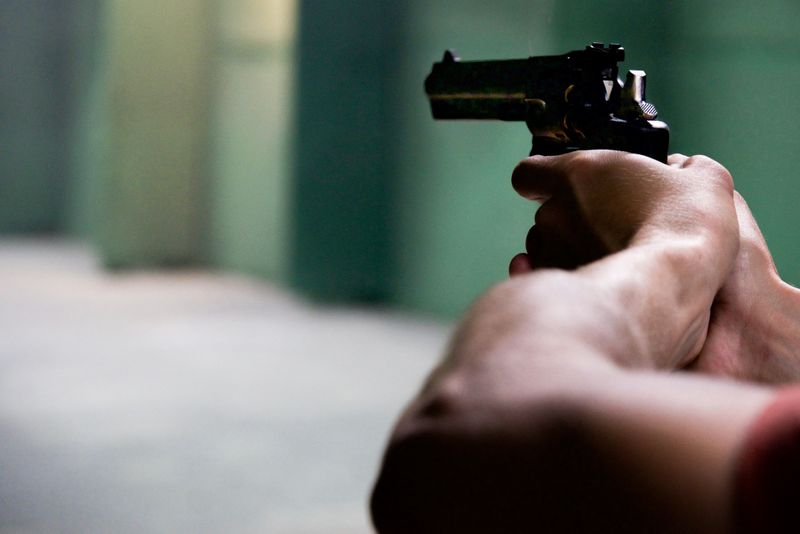Coffee House Steerpike Ex-BBC presenters close ranks around Huw Edwards
Introduction
In the wake of the scandal surrounding BBC television broadcaster Huw Edwards, former BBC staff members are rallying around him and expressing their disapproval of the BBC’s handling of the situation. The controversy has highlighted the complexities of workplace relationships, the responsibility of whistleblowers, and the role of the media in reporting on such matters.
The Scandal and its Fallout
The scandal surrounding Huw Edwards erupted with allegations of inappropriate behavior, which prompted an investigation by the police. However, the police found no evidence of criminal behavior, allowing the BBC to resume its own investigation. During this period, Edwards’s wife made a dignified statement mentioning her husband’s struggle with mental health, while Edwards himself is receiving treatment in hospital.
Former BBC Staff Takes a Stand
Former BBC presenters and correspondents, including Emily Maitlis, Jon Sopel, and Lewis Goodall, who now appear on Global’s ‘News Agents’ podcast, have taken a prominent stance in support of Edwards. Maitlis, known for her infamous interview with Prince Andrew, criticized the BBC for its handling of the saga, suggesting that those with concerns about Edwards should have approached HR or senior management instead of going to the press.
Sopel, on the other hand, emphasized his displeasure with his former employer and defended Edwards against allegations of illegality or abuse of power. Notably, Sopel questioned whether media organizations tend to turn a blind eye to bad behavior in order to protect high-profile presenters who generate substantial revenue for the company.
A Philosophical Debates on Whistleblowing and Media Responsibility
Maitlis’s argument raises philosophical questions about the role of whistleblowers and the responsibility they bear when confronted with misconduct in the workplace. While speaking out against wrongdoing is generally seen as morally commendable, Maitlis suggests that whistleblowers should prioritize going to HR or senior management rather than turning to the media. This raises the broader ethical concern of what constitutes the most effective and responsible approach to addressing workplace grievances and maintaining organizational fairness.
Sopel’s contrasting views expose the challenge of media agencies and their internal investigations, particularly when involving high-profile personalities. It brings into question the potential conflict of interest where financial considerations and the reputation of media powerhouses may impede a thorough and objective investigation. Sopel’s remarks prompt a deeper examination of the role of the media in uncovering misconduct and its responsibility in reporting such issues transparently.
The Role of the Media in Scandals
Scandals involving public figures and media personalities often bring to light the complex dynamics between media organizations, journalists, whistleblowers, and public trust. Journalists have a responsibility to uncover and report on wrongdoing without compromising their ethical standards. Whistleblowers, on the other hand, must grapple with the potential consequences of speaking out, including the risk of retaliation and the impact on their own careers.
It is vital for media organizations to conduct thorough investigations that align with their commitment to accountability and transparency. The credibility and integrity of media outlets depend on their ability to handle such situations responsibly and fairly, ensuring that powerful individuals are not shielded from scrutiny.
Advice for Media Organizations and Employees
In light of this scandal, media organizations must reevaluate their internal processes for handling misconduct allegations. Clear and independent mechanisms for reporting and investigating such matters should be established to ensure transparency and accountability.
For employees, it is important to understand their roles as potential whistleblowers and carefully consider the appropriate course of action when faced with workplace misconduct. While going to the media may serve as an effective means of exposing wrongdoing, it is equally important to consider internal channels for addressing such issues first, as Maitlis has suggested. This ensures that due process is followed, affording the accused an opportunity to respond, and enabling the organization to take appropriate action.
The Power of Solidarity among Media Professionals
The support shown by former BBC presenters for Huw Edwards highlights the importance of solidarity within the media industry. In a world where reputations can be quickly tarnished and careers destroyed, it is crucial for colleagues to stand up for one another and ensure fairness in the face of accusations. However, such solidarity should not obstruct the pursuit of truth and justice. Media professionals must strike a delicate balance between loyalty to their colleagues and their commitment to unbiased reporting and moral integrity.
Conclusion
The scandal surrounding Huw Edwards has sparked a debate about workplace relationships, the role of whistleblowers, and the responsibility of media organizations in addressing misconduct. Former BBC staff members, including Emily Maitlis and Jon Sopel, have taken a stand in support of Edwards, questioning the approach taken by the BBC and advocating for a reevaluation of internal processes.
This scandal serves as a reminder that media organizations must prioritize transparency and accountability in handling allegations of misconduct. Employees, as potential whistleblowers, must carefully consider their options and utilize appropriate channels for reporting grievances. Solidarity among media professionals can help protect reputations, but it must not compromise the pursuit of truth and justice. Ultimately, the media industry plays a crucial role in exposing and addressing misconduct, thereby upholding its integrity and serving the public interest.

<< photo by Robin Benad >>
The image is for illustrative purposes only and does not depict the actual situation.
You might want to read !
- “The Mysteries Surrounding Huw Edwards: Unanswered Questions and Speculation”
- BBC Salary List: Exploring Huw Edwards as the BBC’s Top Earner
- Huw Edwards Surpasses Stephen Nolan to Elevate News Broadcasting Rankings: A Shift in Radio Dominance
- Investigating the BBC Presenter Scandal: Director-General Prepares to Confront the Media
- The Mysterious Connection: Unraveling the Links Between Long Island Serial Killer Suspect and a Notorious Location
- “The Walkout: Unraveling the Controversy Surrounding Oppenheimer’s Film Premiere”
- Why Did the ‘Oppenheimer’ Cast Walk Out of the London Premiere? | Analysis and Explanation




